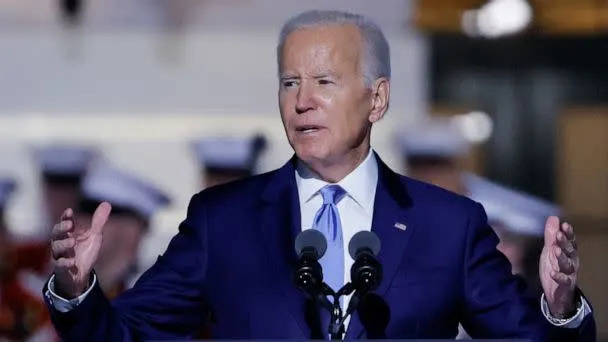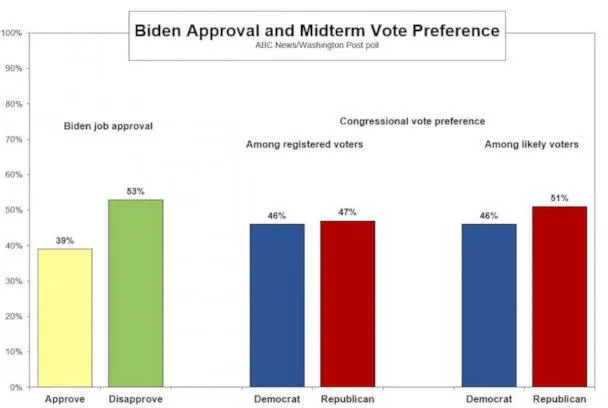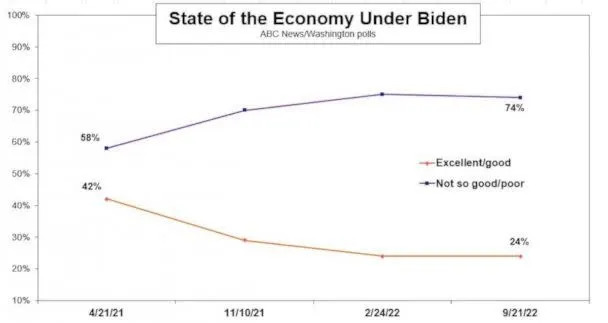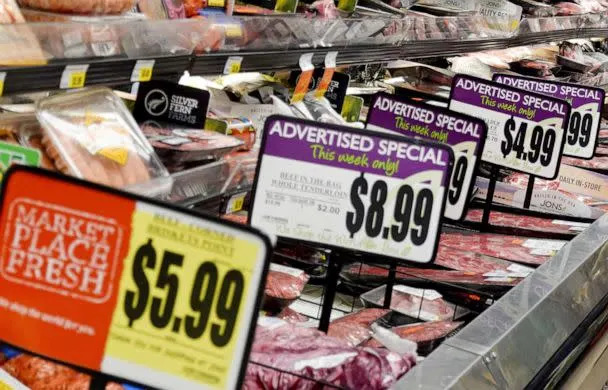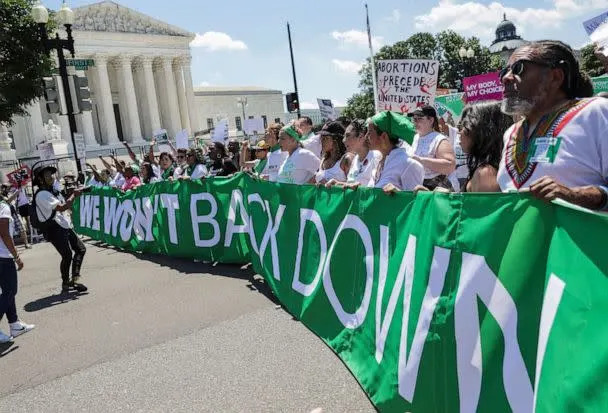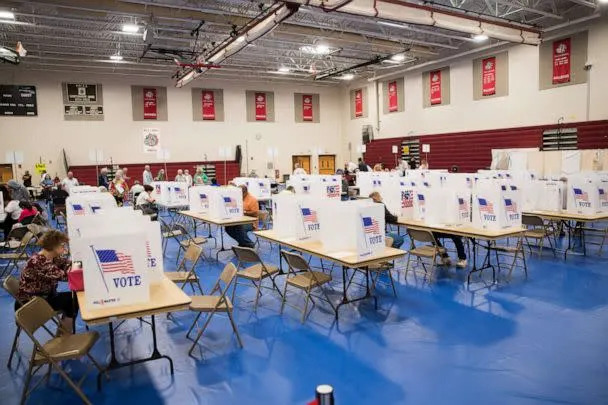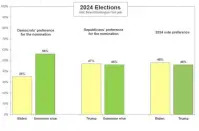
PHOTO: NIALL CARSON/PA WIRE/ZUMA PRESS
Two new books reveal how long Democratic insiders knew about—and covered up—the president’s age-related problems
By Annie Linskey
April 18, 2025 10:56 am ET
Last June, as President Joe Biden sequestered himself in the presidential retreat at Camp David to prepare for a crucial first debate against challenger Donald Trump, one of his top advisers noticed that something was off.
Though Biden had been a voracious political animal for decades, he didn’t know details about what Trump had been saying about him on the campaign trail. At one point the president left debate prep and “shuffled out the door to the pool,” where he “sank into a lounge chair and fell asleep,” according to Ron Klain, Biden’s former chief of staff, who helped to run his debate preparation efforts.
Biden, who at 81 was the oldest person ever to hold the presidency, seemed “befuddled” by discussion of his own domestic agenda. Klain was “struck by how out of touch with American politics he was.”
This account comes from “Uncharted: How Trump Beat Biden, Harris and the Odds in the Wildest Campaign in History,” a book by journalist Chris Whipple published in January. It’s one of several new books about the 2024 campaign that at least partly address the question now at the center of assessing Biden’s legacy: What was the true state of his mental faculties while he served as president?
 President Biden exits his motorcade en route to Camp David to prepare for his debate against Donald Trump, June 20, 2024. PHOTO: JACQUELYN MARTIN/ASSOCIATED PRESS
President Biden exits his motorcade en route to Camp David to prepare for his debate against Donald Trump, June 20, 2024. PHOTO: JACQUELYN MARTIN/ASSOCIATED PRESSUnderstanding Biden’s decisions, and those of the people around him, has become an urgent task for the Democrats, who see President Trump’s second term in office unfolding in just the way they warned about during the campaign, with chaos, retribution and power grabs.
Klain’s observations would have been valuable for the public to know at the time. Instead, he and other members of Biden’s team insisted that the president, whatever his failings at public events, was sharp and energetic behind closed doors.
In early June, three weeks before the debate, my colleague Siobhan Hughes and I wrote an article in The Wall Street Journal that offered the first detailed reporting on how Biden’s decline was raising concerns in Washington. The article generated enormous pushback from the White House, Biden’s allies and left-leaning media commentators, who impugned the motives of the Journal’s sources rather than reckoning with what they had to say.
Now we know that at least some of those Biden defenders privately harbored their own concerns. The president’s stumbling debate performance against Trump on June 27 convinced all but a handful of his closest advisers that he was too unreliable to run for re-election. Biden spent the next three weeks trying to convince the world that the debate had been just one bad night, but on July 21 he finally withdrew from the race.
Like Whipple’s book, “Fight: Inside the Wildest Battle for the White House” by Jonathan Allen and Amie Parnes devotes considerable attention to both parties’ 2024 campaigns, including Kamala Harris’s after she took over from Biden as the Democratic nominee. Next month comes “Original Sin: President Biden’s Decline, Its Cover-Up and His Disastrous Choice to Run Again,” by CNN host Jake Tapper and Axios reporter Alex Thompson, which will focus more squarely on the Biden drama.
 Biden’s former Chief of Staff Ron Klain, seen here in June 2022, was ‘struck by how out of touch’ the president seemed during the 2024 campaign. PHOTO: STEFANI REYNOLDS/AGENCE FRANCE-PRESSE/GETTY IMAGES
Biden’s former Chief of Staff Ron Klain, seen here in June 2022, was ‘struck by how out of touch’ the president seemed during the 2024 campaign. PHOTO: STEFANI REYNOLDS/AGENCE FRANCE-PRESSE/GETTY IMAGESAs far back as the 2020 presidential campaign, Biden’s aides tried to avoid scheduling events for him in the evening, Allen and Parnes report. Some in Biden’s inner circle acknowledge that Covid-related restrictions allowed the former vice president to run his campaign mostly from his basement in Wilmington, Del. ─“out of the public eye,” according to Whipple. Years later, at a July 2023 picnic for members of Congress, Biden struggled to recognize Rep. Eric Swalwell, one of his rivals for the 2020 Democratic nomination. Allen and Parnes report that Swalwell had to cue Biden with personal details to remind him who he was.
In September 2021, during a meeting with lawmakers in the West Wing, President Biden veered wildly off topic and told stories about his time in the Senate. Some in attendance viewed the rambling episode “as evidence he was losing his grip,” Allen and Parnes write. But others simply thought it was an example of Biden’s familiar long-windedness. Such varying interpretations of the president’s behavior gave the White House lots of room to dismiss problems that later became undeniable.
Big-money donors got early glimpses of the problems in store for Biden’s re-election campaign. At a June 2023 fundraiser where he was introduced by investment banker and Democratic donor Blair Effron in New York, attendees recalled that the president’s speech was slurred and his body “locked up for a moment.” One guest told Allen and Parnes that the incident caused people to wonder if Biden “had the faculties to compete for the presidency.” Around the same time, the president had trouble remembering the word “veteran” while speaking at a fundraiser, The Wall Street Journal reported last July.
Concern about Biden’s acuity snowballed in 2024, when Democratic Party bigwigs began to voice their worries privately to top White House officials. When the president hosted a Saint Patrick’s Day event in March 2024, William Daley, who had served as President Obama’s chief of staff, was taken aback that Biden needed a teleprompter to talk to his guests.
“How are they letting this thing go on?” Daley wondered, according to Whipple’s account. He brought his concerns to Tom Donilon, a former national security adviser to President Obama whose brother, Mike Donilon, was one of Biden’s closest confidants. Tom Donilon told Daley that his brother hadn’t talked to Biden about the possibility of not running for re-election.
President Biden with Irish leader Leo Varadkar at the White House on St. Patrick’s Day in March 2024. After seeing Biden struggle at the event, William Daley, a former Obama Chief of Staff, wondered, ‘How are they letting this thing go on?’
Whipple also reveals that when one Democratic operative interviewed for a top job with the Biden campaign in March 2024, he was told the president “doesn’t have the energy” to run a full-bore campaign. “How do we fix that?” Biden staffers asked.
The operative saw Biden’s weaknesses for himself. “He wasn’t asking questions,” he told Whipple. “It was everyone else, not him. And it felt like they were just trying to cover up that he didn’t really know what was going on.”
When Daley saw Biden again in May 2024, he was “rattled” by the president’s frailty. Daley felt like many others who had known Biden for a long time: “He was friendly and all that, but he was just not the same guy.” Former Democratic House Speaker Nancy Pelosi was also unsettled by the Biden she saw, Whipple reports. After a ceremony where she was presented with the Presidential Medal of Freedom, Pelosi told a friend, “He was not the same Joe Biden.”
Not everyone was reluctant to say so publicly. Former Republican House Speaker Kevin McCarthy told me and Siobhan Hughes the same thing for our story published early last June, saying that Biden was “not the same person” he had known years earlier.
Both Daley and Pelosi were each concerned enough to urge Biden’s team to cancel the planned debate with Donald Trump. “Do not do this,” Daley warned Jeff Zients, Biden’s chief of staff at the time, according to Whipple. “Come up with something, but do not do it.”

After receiving the Presidential Medal of Freedom from President Biden on May 3, 2024, former House Speaker Nancy Pelosi warned him not to debate Trump: 'You cannot go on stage with him.'ANDREW CABALLERO-REYNOLDS/AFP/GETTY IMAGES (2)
Pelosi told Biden directly, “You cannot go on stage with him,” according to Allen and Parnes. Realizing that Biden was eager to take on Trump, Pelosi offered conditional support, Allen and Parnes write. “As long as the State of the Union Joe Biden comes out,” she told the president, “it’ll be great.”
Biden’s State of the Union address in March 2024 had reassured jittery Democrats: The president read a lengthy speech without major problems, and engaged in a few spontaneous exchanges with lawmakers in the audience.
Much effort went into stage managing that moment. Whipple reports that director Steven Spielberg coached Biden on his body language before the speech, telling the president what to emphasize and how to pace himself.
Still, Biden’s team actively concealed his decline. Aides in their 40s claimed that they struggled to keep up with the president. In June 2024, campaign spokesperson Adrienne Elrod went on TV to push the message of Biden’s robust health, claiming that he was “sharper than ever.”
 Biden’s performance in a televised debate with Donald Trump on June 27, 2024, led to the unraveling of his reelection campaign. PHOTO: GERALD HERBERT/ASSOCIATED PRESS
Biden’s performance in a televised debate with Donald Trump on June 27, 2024, led to the unraveling of his reelection campaign. PHOTO: GERALD HERBERT/ASSOCIATED PRESS Viewers react to the Biden-Trump debate during a watch party in Shirlington, Va., June 27, 2024. PHOTO: CAROL GUZY/ZUMA PRESS
Viewers react to the Biden-Trump debate during a watch party in Shirlington, Va., June 27, 2024. PHOTO: CAROL GUZY/ZUMA PRESSAfter the disastrous debate with Trump, Biden’s aides claimed to be surprised, saying his debate prep had gone well. Members of his family, eager to cast blame, even suggested that Biden’s problem was that he’d been “overprepared,” according to Allen and Parnes. In fact, as Whipple shows, debate prep sessions were repeatedly cut short. Allen and Parnes report that a practice debate space, constructed to look exactly like the CNN set, was used only once.
The president’s team also fudged on other topics. When Biden sought the presidential nomination in 2020, he said he saw himself as a “bridge” to the next generation of Democratic leaders, which many observers took to imply that he would not run for re-election. But Biden never actually considered staying in office for just one term. “I don’t remember any discussion of that,” Biden’s longtime adviser Ted Kaufman told Whipple. “Presidents run for two terms.”
The Biden team also liked to tout his friendship with Barack Obama, which has been one of the most important relationships of his political life. The reality was far more complicated, and the new campaign books reveal simmering tension between the two Democratic presidents.
Biden harbored a lasting grudge against Obama for helping to clear the field of Democratic candidates when Hillary Clinton ran for the nomination in 2016. Biden seriously considered entering the race that year and felt insulted when Obama asked him, “How do you want to spend the rest of your life?” He took it to mean that Obama didn’t see him running for president as an option, Allen and Parnes report. After the debate fiasco in 2024, Biden was again infuriated when Obama asked him, “What’s your path?”
 Former President Joe Biden PHOTO: ANNABELLE GORDON/REUTERS
Former President Joe Biden PHOTO: ANNABELLE GORDON/REUTERS President Biden and first lady Jill Biden boarding Air Force One in January. PHOTO: ROBERTO SCHMIDT/AGENCE FRANCE-PRESSE/GETTY IMAGES
President Biden and first lady Jill Biden boarding Air Force One in January. PHOTO: ROBERTO SCHMIDT/AGENCE FRANCE-PRESSE/GETTY IMAGES A recently released book examining Biden’s health while in office. PHOTO: SPENCER PLATT/GETTY IMAGES
A recently released book examining Biden’s health while in office. PHOTO: SPENCER PLATT/GETTY IMAGES The book,
The book, 



 A few weeks before former President Joseph R. Biden Jr.’s final White House physical exam in early 2024, his aides decided against having him undergo a cognitive test.Credit...Pete Marovich for The New York Times
A few weeks before former President Joseph R. Biden Jr.’s final White House physical exam in early 2024, his aides decided against having him undergo a cognitive test.Credit...Pete Marovich for The New York Times





